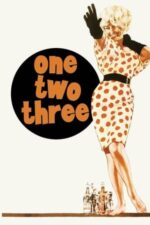Beyond the Iron Curtain: Exploring Cinema from the Soviet Union
The Soviet Union. Just saying the name conjures up images of stark landscapes, imposing architecture, and a certain… mystery. For decades, it existed as a cultural and political behemoth, largely separate from the Western world, and its cinema reflected that unique position – sometimes subtly, sometimes with defiant boldness. It’s more than just “Soviet Cinema,” though; it's a vast tapestry woven with threads of propaganda, artistry, satire, and genuine human drama.
What struck me early on when I started delving into Soviet films (and believe me, it was a deep dive for a while!) wasn't necessarily the political messaging – although that’s certainly present – but the sheer ingenuity filmmakers employed to work within constraints. Think about The Diamond Arm (Небриллиантовая рука). On the surface, it’s a hilarious heist comedy, full of slapstick and musical numbers. But beneath the laughter lies a sharp satire of Soviet bureaucracy and consumerism, cleverly disguised as pure entertainment. It's brilliant how they managed to poke fun at the system while simultaneously celebrating its (often manufactured) successes.
Then you have films like Between Borders, which offer a heartbreakingly personal look at the human cost of political ideologies. The Petrosyan family’s journey is a powerful reminder that behind every policy, every border drawn on a map, are real people with hopes and dreams – and often, immense suffering. It's a story of resilience, faith, and the universal desire for belonging, themes that resonate far beyond any specific historical context.
The films aren't always grand narratives either. The Mulberry Tree, for example, is a beautifully understated film about something as simple as a tree dividing two families. Yet, it becomes a microcosm of larger societal tensions – ownership versus community, individual desire versus collective responsibility. It’s a testament to how even the smallest stories can illuminate profound truths.
And let's not forget the action! Invasion and The Star showcase a different side: gripping narratives rooted in historical events, often highlighting courage and sacrifice. The Star, with its elite sniper squad, feels almost like a Soviet answer to a Hollywood war movie – but with a distinctly Eastern European sensibility.
Exploring cinema from the Soviet Union isn't just about understanding history; it’s about appreciating the power of art to transcend political boundaries. It’s about recognizing the ingenuity and resilience of filmmakers who found ways to tell stories, even when their voices were constrained. It’s a fascinating window into a world that no longer exists, but whose echoes continue to shape our own.
What film from this list sparks your curiosity? Perhaps you'd like to discuss the role of music in Soviet comedies or the challenges faced by filmmakers under strict censorship? Let me know!







































